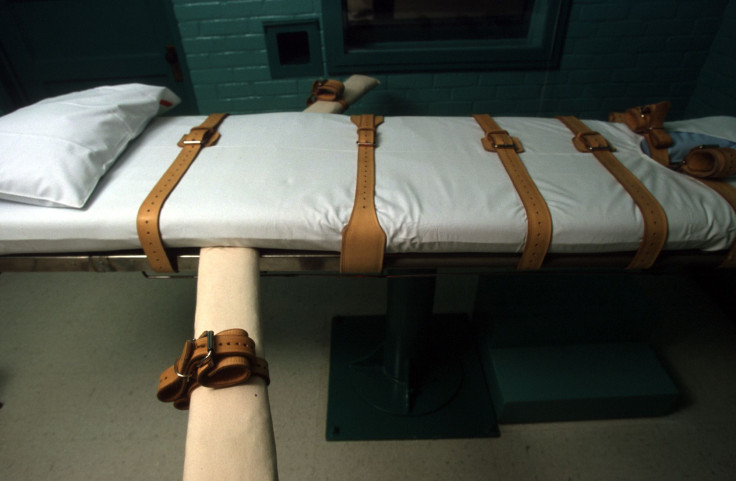Death Penalty In The Time Of COVID: Missouri Killer Executed By Lethal Injection

KEY POINTS
- Walter Barton became the first prisoner to be exeucted during the COVID-19 pandemic
- The 64-year-old was put to death by lethal injection Tuesday
- Barton was convicted for killing 81-year-old Gladys Kuehler in 1991
A convicted killer out of Missouri became the first prisoner to be executed in the United States since the start of the pandemic caused by COVID-19.
For the past three decades, Walter Barton’s case was involved in various predicaments, including going through appeals, mistrials and two overturned convictions. Finally, the 64-year-old was put to death by lethal injection late Tuesday for the death of 81-year-old Gladys Kuehler in 1991.
His sentence was carried after the Supreme Court denied a stay of execution and with Missouri Governor Mike Parson declining to grant clemency.

USA Today said Barton “breathed heavily” for five times after the lethal concoction of drugs entered his bloodstream, then suddenly stopped.
“I, Walter ‘Arkie’ Barton, am innocent and they are executing an innocent man!” said the suspect prior to his execution.
Barton was with Kuehler’s granddaughter and neighbor on the eve of October 9, 1991, when they found the victim dead in her bedroom. Prior to the crime, the suspect spent time at the mobile house park that Kuehler operated.
“I, Walter ‘Arkie’ Barton, am innocent and they are executing an innocent man!!”— #WalterBarton, executed on May 19 at via @KCStar https://t.co/b4N8WtR5Of
— The Innocence Project (@innocence) May 20, 2020
Kuehler had been beaten, raped and stabbed more than 50 times, reported The Associated Press, through Fox News.
Police discovered three small bloodstains on Barton’s clothing and said he got them when he pulled the victim’s granddaughter away from Kuehler’s body. Initially, she confirmed Barton’s claim, but later testified that he never set foot in the bedroom. A blood splatter expert claimed that the blood stains came from the “impact” of the knife, while subsequent DNA tests confirmed that it was Kuehler’s blood on Barton’s clothing.
Barton’s lawyer, Fred Duchardt, Jr. on the other hand cited recent court filings of Lawrence Renner, who concluded that the suspect would have had much more blood after examining Barton’s boots and clothing.
At 6:13 CST tonight, #Missouri executed #WalterBarton. This was the first execution to take place during the COVID-19 pandemic. We offer prayers of peace and comfort for #WalterBarton, his loved ones, and all impacted by tonight's execution.
— Catholic Mobilizing Network (@CMNEndtheDP) May 19, 2020
The legal counsel added that three jurors signed an affidavit and called the new findings as “compelling” and that it would’ve affected their deliberations. The jury foreman also said the evidence would have made him “uncomfortable” sentencing Barton to death.
© Copyright IBTimes 2025. All rights reserved.





















